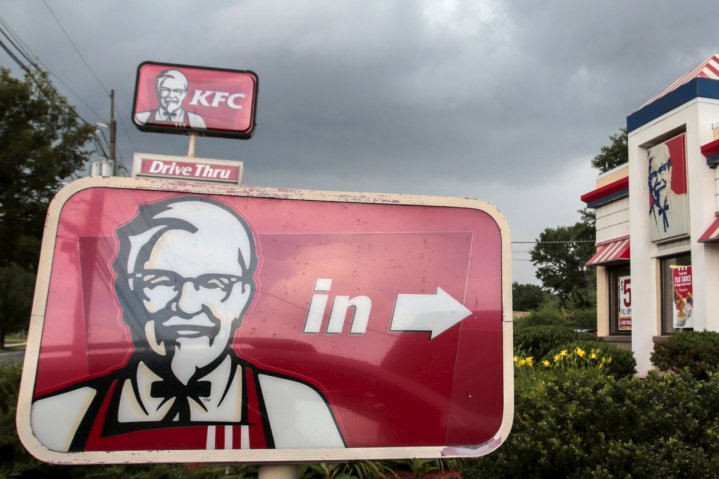
Christmas and KFC bucket chicken are a heady combination in Japan, whose Christian population amounts to a negligible one percent of the population. It has become a custom to eat Kentucky Fried Chicken for Christmas day. Isn't that weird? An estimated 3.6 million Japanese families eat KFC during the Christmas season, reported the BBC. People often queue up in long lines to get their favorite piece of fried chicken.
It is reported that the daily sales in KFC during the Christmas day will be ten times more than a normal day. According to a report published by BBC, the custom began in 1970, shortly after the first KFC branch opened.
Takeshi Okawara, the manager of the first KFC branch, came up with the idea of a 'party barrel' to be sold during Christmas. The idea came up when Okawara overheard foreign customers talking about how they miss the traditional turkey lunch for the festive season. He felt that this idea would be a perfect replacement for the age-old custom. In 1974, the concept, which was called Kurisumasu ni, was Kentakkii or Kentucky for Christmas, was a huge hit throughout the nation.
Today, the party barrel is a national phenomenon and many agencies study the KFC's marketing strategy as a model campaign. This year, the dinner package was priced at 3,780 yen, and a whole-roasted chicken 5,800 yen. According to CBC Japan, last year, for the Dec. 23-25 period, KFC sold 5.49 billion yen worth (over $63 million Cdn) of chicken in Japan — setting a record for per-store sales.
While millions celebrate Christmas with fried chicken, others consider Christmas as a day for romantic holiday or date. "Christmas, which is strictly speaking Christmas Eve in Japan, has become a synonym for a romantic date or party time. It has lost its original meaning, much in the same way that Japanese society swallows many foreign cultures and digests them to become a part of our own," Ayako Sogo, a magazine editor, was quoted saying to The Strait Times.
Well, for Japanese it has become a tradition but for the rest of the world it is still a weird fact.









